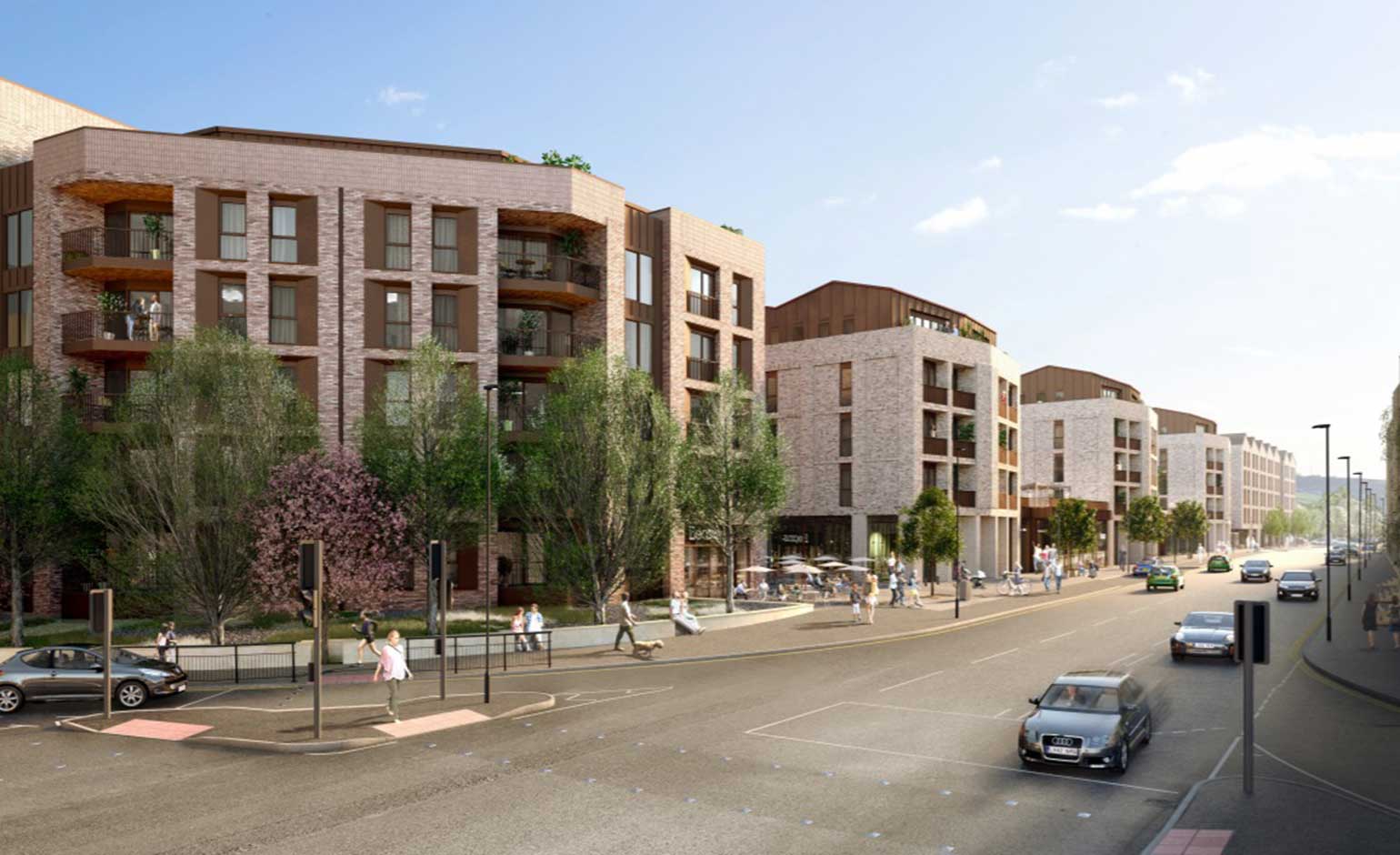Plans to demolish a car dealership in Bath to build housing for 335 students plus 316 build-to-rent flats have been tipped for refusal despite warnings of a costly challenge.

How the student housing and rentable flats could look | Image © Watkin Jones Group
Planning chiefs said the shortfall of up to 254 parking spaces was enough to reject the Lower Bristol Road scheme but applicant Watkin Jones Group has threatened to appeal.
Car dealer Dick Lovett is moving out of Bath to a new showroom in Melksham, freeing up its BMW and Mini showrooms for redevelopment.
The firm is currently challenging Bath and North East Somerset Council’s decision to refuse its bid to redevelop the Mini dealership with 290 student rooms. The appeal has not yet been heard.
More than 70 people objected to Watkin Jones Group’s proposals, with many adamant that Bath does not need more student housing.
Objector Rebecca Marsh said: “No more PBSAs [purpose-built student accommodation] at the expense of decent housing for a range of people. Low earners, single people, couples, families etc.
“Address Bath’s housing needs and STOP the constant greedy developers from trying to rinse the student community.”
She added: “We have a housing crisis in Bath, until that is addressed and non-transient residents of the city given priority, then all PBSAs should be stopped. We have enough.”
Michael Jones said: “The Lower Bristol Road is fast being eroded into a mass of flats with totally contrasting styles which are completely overdeveloping and ruining the area, there is absolutely no more requirement for student accommodation.”
Peter Lewis said the scheme would “contribute to another modern ghetto”, adding: “This proposal makes no direct contribution to the stock of affordable housing, help to buy housing nor social housing. Where are minimum wage workers, with or without a family, to live other than far out of Bath?”
Three in 10 of the rentable flats would be affordable. Half of those would be available at 60 per cent of the open market rate and the rest at 80 per cent. Council officers said that was reasonable due to viability issues.
The design of the four blocks, which would stand up to six storeys high, also came under fire from critics.
Westmoreland ward councillor June Player said the buildings were “far too bulky-looking, far too high and positioned far too close to the pavement”.
She said the development would harm Bath’s World Heritage Site and, combined with approved plans for the Bath Press site, create a “roofless tunnel” that would trap noise and pollution.
The Bath Preservation Trust echoed Cllr Player’s concerns about overdevelopment and the impact on the World Heritage Site.
There were 17 supporting comments, with some arguing the concentration of students along Lower Bristol Road made sense.
Others said creating more purpose-built accommodation would help to free up houses for families, although planning officers said there was not yet evidence to back that up.
They said the development’s design responds well to the context and constraints of the site and would contribute positively to local character and distinctiveness, and the public benefits outweighed the harm to the World Heritage Site.
However, the planning officers recommended refusal due to the failure to provide an adequate level of off-street parking.
The proposals include 120 parking spaces, enough for less than a third of the buy-to-rent flats and none of the students – a shortfall of up to 254 bays that is expected to increase demand for on-street parking.
In published correspondence, Dan Weaver from planning consultancy Pegasus Group said the council’s parking standards are not directly applicable to build-to-rent schemes.
He advised that Dick Lovett was prepared to appeal – a “waste of our client’s and frankly the council’s costs, time and resources”.
The planning committee will consider the application on 25th August.
Stephen Sumner, Local Democracy Reporter



